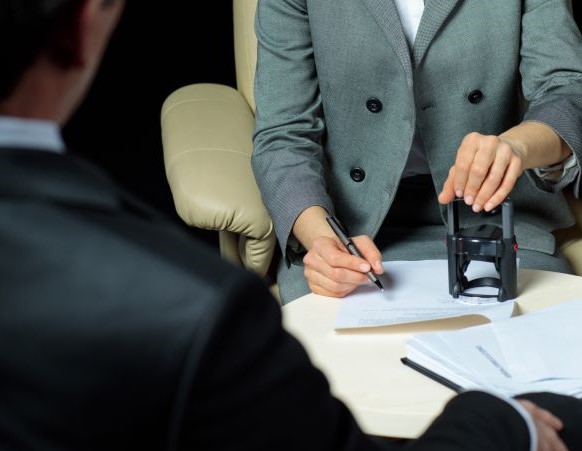The job of a sworn translator is usually associated with prestige. No wonder – such a person has public trust and not only possesses vast linguistic knowledge. Sworn translators are also experts on many other fields covered by the translated texts, primarily law and economy.
Many Germanists, both experienced translators and beginners, also want to try the career of a sworn translator. A German poet Johann Wolfgang von Goethe used to say: “To have more, you must first be more”. So now it’s time to share some information about a sworn translator’s work in Poland, Germany and other German-speaking countries.
Sworn German translator in Poland
Currently, there are around 3700 sworn German translators registered by the Ministry of Justice. Almost 1 in every 20 of them listed Kraków as their place of residence.
The criteria to fulfil are not different from those for sworn translators of other languages. One exception is obviously the perfect command of German, both spoken and written, which is verified during a written and oral exam. The written part includes two texts to translate from German into Polish, and two texts to translate from Polish into German. A positive result of the written part of the exam qualifies you to take the oral part. However, the latter is extremely hard, and every year many people fail to pass this part of the exam in this particular language combination. For example, in 2013, only 4 of 12 persons succeeded.
Sworn German translator abroad
Poland’s western neighbour doesn’t have any legal regulations as to performing the job of translator. However, in order to translate legal texts, or else – to become Staatlich geprüfter Übersetzer/Dolmetscher/Gebärdensprachdolmetscher (that is: written sworn translator, oral sworn translator, or sworn translator of sign language) – one needs to pass a state exam. The prerequisite to take it is either higher education in the field, or certified language and translation skills, paired with at least three years of professional experience.
Meanwhile in Austria, the matters related to the sworn translator’s job are regulated by the Austrian Federal Act on Sworn and Court-Certified Experts and Interpreters (Bundesgesetz über die allgemein beeideten und gerichtlich zertifizierten Sachverständigen und Dolmetscher (SDG)). Also, a two-year professional experience is an essential requirement for taking the exam in case of graduates of studies for translators and interpreters (Übersetzer- und Dolmetscherausbildung), and in case of other candidates, the required experience period is three years longer. The examination fee in Austria is 400 EUR. It is worth mentioning that a candidate can bring additional examiners to their exam session, which is obviously charged separately (100 EUR for each examiner).
Meanwhile in the Zurich Canton, which belongs to the German-speaking part of Switzerland, the conditions of admission in the list of sworn translators are regulated by Dolmetscherverordnung (Interpreter Regulation) of 2003. One might apply for being included in the list only when there is an actual need for a translator of a certain language. Currently, the list kept by VZGDÜ (Verband Zürcher Gerichtsdolmetscher und -Übersetzer (Association of Zurich Court Interpreters and Translators)) includes around 600 persons speaking 115 languages, so the most needed experts are those speaking the so-called “rare languages” from the regions of Africa, Asia, and the former Soviet republics. Pursuant to the regulation, a candidate for sworn translator should have perfect command of the standard German language, both written and spoken, possess a thorough knowledge of the chosen foreign language, both written and spoken, and be able to make “correct, complete and quick” translations and interpretations.
Sworn German translators – Kraków is a good place to find them
Since our homeland borders on Germany, mutual contacts cannot be avoided. Many German companies open their branches in Poland, and vice versa – Polish companies want their offers to reach German consumers as well. Polish citizens often work in Germany, seek medical assistance in the German healthcare system, or bring German cars to Poland. Translated documentation might be necessary, regardless of the situation.
If you have any documents to be translated from or into German, required by a public office or by court, they must be translated by a sworn German translator. Kraków boasts an extensive base of these professionals. The Alingua translation agency cooperates with many specialists in their field. We offer a free quotation and advise on how to deliver the documents, and we are looking forward to our cooperation.





